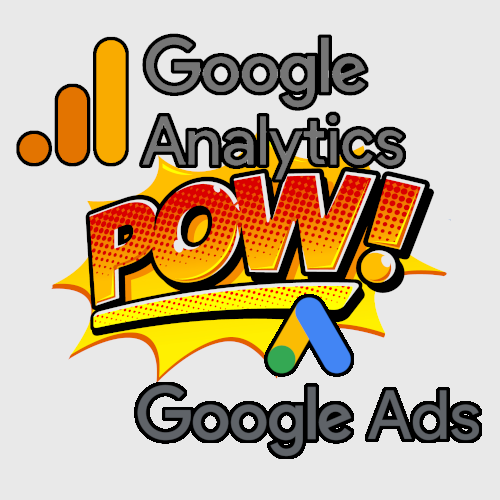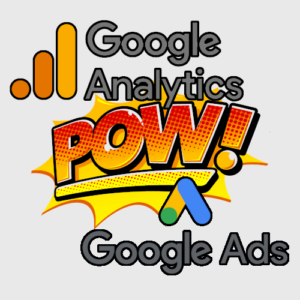
Google Ads Conversions vs GA4 Purchases Import
Google Ads Conversions vs GA4 Purchases Import
 The world of Paid Search has become increasingly complicated over the past few years and with the introduction of GA4 tracking your performance has become a lot more… interesting shall we say.
The world of Paid Search has become increasingly complicated over the past few years and with the introduction of GA4 tracking your performance has become a lot more… interesting shall we say.
When we first started with GA4 we thought about following their advice, to sync GA4 and use it as our primary conversion measurement for Google Ads. We held back as some clients were still using Universal Google Analytics and it was tracking well so we thought we’d hold out until the end.
The end eventually came, and we’d been speaking to our Google Ads “Account Strategists” (in inverted commas as we all know they’re really just salespeople) and they were all saying best practice is using the Google Ads Tag with obviously Enhanced Conversions enabled and implemented. There was a tone of almost desperation in their communications though which made us wary.
As it turns out, as many have probably found out too, that the data driven attribution in GA4 is a bit weird. It doesn’t seem to recognise Paid Search as much as you’d expect it to. And what’s more is that when we compare the Google Ads tag or even Universal GA’s tracking to GA4, GA4 under reports up to almost 40%. Even in the best cases we’ve seen it under reports between 25% and 30%.
Now, I know all of the technical PPC’ers out there will be shouting at their screen, they’re two totally different tracking methods and because GA4 sees more of the consumer journey it will naturally have to divide sales between more channels etc. But in my experience when you’re running a full funnel PPC strategy it tends to be by far one of the more significant channels for a traditional Ecommerce company. And by that reasoning I would expect GA4 to attribute many fractions of conversion to equate to a much larger proportion than we’re currently seeing.
What we’ve also noticed is, and this is a weird one to test particularly with the client’s consent, is that overall business performance improved when we did an A/B test between using the Google Ads tag as the primary conversion source versus using GA4 as our primary conversion source. So, by feeding our campaigns that additional attribution of sales we saw more relevant people coming to the site through other channels (most likely as a result of using Google Ads clicks as research and coming back via other sources). Allowing the Google Ads campaigns to “stretch their wings” by attributing them with more sales allowed us to reach more relevant users.
The takeaway for us has been that unfortunately they days of using Google Analytics or any other analytics platform to optimise your Google Ads campaigns has come to an end. Google has engineered it in such a way that the Google Ads Tag has obviously got much richer data but also through its own isolation gives the algorithms a better chance to optimise.
In our next blog we’ll discuss Enhanced conversions and the data privacy implications. Is it something you’ve considered for your website? Google just pushes it on you without mentioning where it stands with data privacy regulations.
